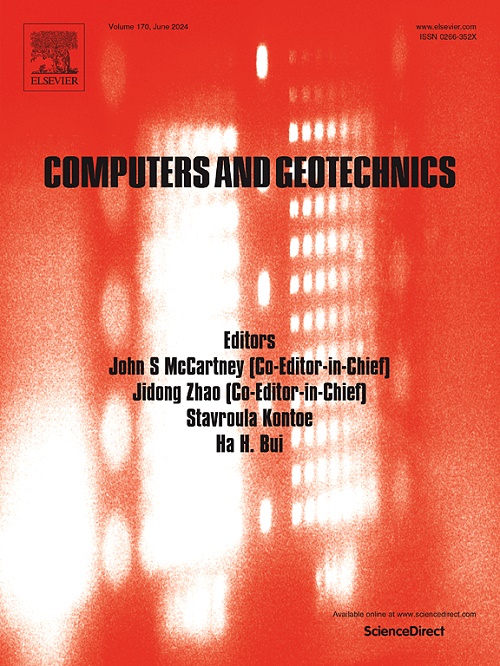Bayesian sensitivity analysis of the millimetre-wave ablation process of geological materials
IF 6.2
1区 工程技术
Q1 COMPUTER SCIENCE, INTERDISCIPLINARY APPLICATIONS
引用次数: 0
Abstract
Thermophysical granular properties exhibit large uncertainties which have a significant effect on the performance of millimetre wave beam energy ablation. To analyse these effects, we present a sensitivity analysis algorithm. This algorithm combines a high-fidelity thermal PDE solver, Gaussian process modelling, and variance-based sensitivity analysis to reduce the computational cost of evaluating global sensitivity indices. First, a response metamodel of a non-linear physics simulator is constructed using noisy observations and small sample sizes. It is trained using a Gaussian Process with spectral mixture kernels, which are a wide kernel family capable of capturing complex patterns. Bayesian quadrature for the calculation of conditional expectations and uncertainty sampling is used to compute the sensitivity indices of the response model, using analytical integral formulae we derive. This combination produces significantly more accurate sensitivity indices compared to standard Monte-Carlo integration. Finally, the algorithm is applied on a range of cases to quantify the effects of rock thermophysical properties and heterogeneities on the performance of the millimetre wave drilling process.
地质材料毫米波烧蚀过程的贝叶斯灵敏度分析
颗粒的热物理性质具有很大的不确定性,这对毫米波能量烧蚀的性能有很大的影响。为了分析这些影响,我们提出了一种灵敏度分析算法。该算法结合了高保真热PDE求解器、高斯过程建模和基于方差的灵敏度分析,减少了评估全局灵敏度指标的计算成本。首先,利用噪声观测和小样本量构建了非线性物理模拟器的响应元模型。它是使用高斯过程与光谱混合核,这是一个广泛的核族能够捕获复杂的模式训练。用贝叶斯正交法计算条件期望,用不确定性采样法计算响应模型的灵敏度指标,并推导出解析积分公式。与标准蒙特卡罗积分相比,这种组合产生的灵敏度指数明显更精确。最后,将该算法应用于一系列案例,以量化岩石热物性和非均质性对毫米波钻井过程性能的影响。
本文章由计算机程序翻译,如有差异,请以英文原文为准。
求助全文
约1分钟内获得全文
求助全文
来源期刊

Computers and Geotechnics
地学-地球科学综合
CiteScore
9.10
自引率
15.10%
发文量
438
审稿时长
45 days
期刊介绍:
The use of computers is firmly established in geotechnical engineering and continues to grow rapidly in both engineering practice and academe. The development of advanced numerical techniques and constitutive modeling, in conjunction with rapid developments in computer hardware, enables problems to be tackled that were unthinkable even a few years ago. Computers and Geotechnics provides an up-to-date reference for engineers and researchers engaged in computer aided analysis and research in geotechnical engineering. The journal is intended for an expeditious dissemination of advanced computer applications across a broad range of geotechnical topics. Contributions on advances in numerical algorithms, computer implementation of new constitutive models and probabilistic methods are especially encouraged.
 求助内容:
求助内容: 应助结果提醒方式:
应助结果提醒方式:


